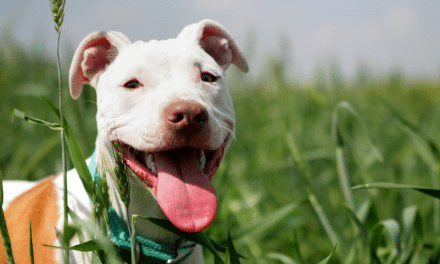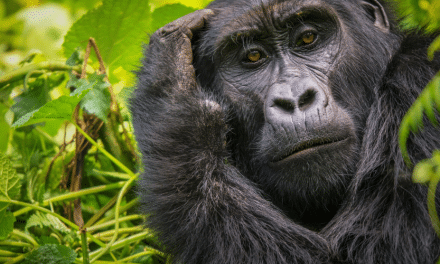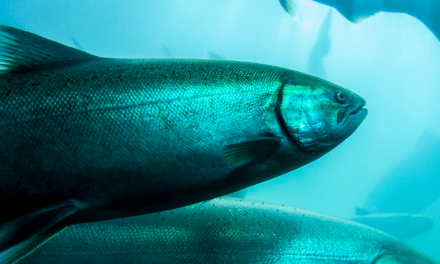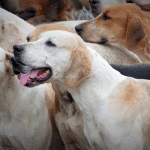By Debbie Lee, student
The number of students interested in animal law seems to increase every year. To work in law related to animal issues, you will have to first qualify as a solicitor, a legal executive, or a barrister. The following sites provide information on how to qualify into these professions.
Solicitors Regulation Authority
The main skills that benefit an animal law practitioner are those that apply in all areas of legal practice, such as excellent communication skills, cooperation with teams, and the ability to work well under pressure. The standard career progression opportunities for lawyers in general are also available to animal lawyers, including joining a law firm as an associate and possibly moving through the ranks over time to become a partner; becoming a legal consultant for an organisation; qualifying as a barrister and thereafter specialising in animal rights; and setting up your own law firm practice.
If you are interested in prosecuting parties responsible for animal cruelty offences, criminal law may be your calling. The RSPCA has a criminal prosecution team working in this area. The team is composed of ”case prosecution managers” that work with RSPCA inspectors to compile the evidence needed to bring the cases before the courts. Experience in law enforcement (knowledge of the Code for Crown Prosecutors in particular), animal welfare, legal writing, and report writing will prove beneficial. To gain experience into this sort of position, one could first work as an RSPCA inspector to gain the necessary insight and experience. For further information about the case prosecution managers and the RSPCA’s work, check out this website.
Although opportunities to specialise in animal-related legal matters with organisations like the RSPCA may not be numerous, other criminal law opportunities abound. For example, criminal lawyers could represent animal rights activists as part of a broader criminal law practice area. Representing clients in court in criminal cases will either require qualification as a barrister or accreditation as a duty solicitor with higher rights of audience. To join the duty solicitor scheme, solicitors must apply for membership of the Law Society’s Criminal Litigation Accreditation Scheme (CLAS). Only those who have completed the Police Station Representatives Accreditation Scheme (PSRAS) or the Police Station Qualification (PSQ) and the Magistrates Court Qualification (MCQ) can obtain CLAS membership. The SRA Authorisation of Individuals Regulations sets out the education and training requirements for those seeking to exercise higher rights of audience in the higher courts of England and Wales. Experience of advocacy and court case planning will be beneficial in this career route.
UK solicitors and barristers can specialise in niche areas of animal law such as dog law, prosecuting and defending specific sorts of cases. These cases may involve dangerous dogs, dog attacks, and dog ownership disputes. This specialisation can be in criminal law as well as civil law, the latter including acting for local government agencies. Once you have built up your reputation for acting and working on cases in this area, you could apply to work as a consultant for national dog organisations, such as The Dogs Trust, Battersea Dogs and Cats Home, and The Guide Dogs for the Blind Association. In addition to legal experience, any dog behaviour knowledge will be beneficial in this area. An example of a law firm working in this area is Trevor Cooper’s practice.
Another area of law to specialise in is equine law, particularly for anyone keenly interested in horses, or perhaps riders or owners who could more easily build a potential network of clients and contacts in the industry. Potential cases in this area could involve road traffic issues, horse welfare, horse disputes, horse passports, and professional negligence industry regulation and investigation. Undertaking a Continuing Professional Development course on disputes and horses would put you at an advantage and demonstrate expertise in this area. You could also start representing clients in cases beyond the courts, e.g. in alternative dispute resolution or mediation. Here is a link to a law firm that specialises in equine law, plus two articles on careers in equine law here and here.
Some areas of law focus on the civil wrongs of professionals such as veterinarians, where they have not upheld the level of care expected of them. A strong sense of care for the animals in particular could be what drives you to go into this area, which can also give you the opportunity to write articles in dog or equine magazines. An example of a law firm that practices in this area can be found here.
Public law is another strong option. As a lawyer, you can engage with and challenge public bodies making decisions that affect animals and the environment, such as wild animal culling, planning permissions, protecting areas of outstanding beauty, and much more. You might want to improve the way solicitors and other professionals can gather evidence that lets them work to help animals, like through data protection and freedom of information expertise. Also, building a reputation of working on cases that merit judicial review will enable you to potentially attract more work and more clients as well as set landmark cases in various areas, including fundamental rights and freedoms, criminal defence and extradition, media and information, and actions against the state. A solicitors’ firm working in this area of public law is found at the this link. An example of a barristers’ chambers with a specialised Animal Rights team covering civil, criminal and public law matters may be found at this link.
Working as a lawyer for an animal organisation that advises the government and other powerful entities is another way to practise animal law. Such work would involve gathering positive evidence (assessments and statistics) to include in government consultation submissions for improving and reforming policies and laws that affect animals and the environment. Examples include focusing on UK’s withdrawal from the EU and its impact on UK environmental standards particularly in sustainable fisheries management. Previous experience in transactions and representing clients in regulatory change would be an advantage. Some examples of national and international animal organisations who carry out legal work in this field are Lawyers for Companion Animals in Australia, as well as A-Law itself.
Some legal practice areas may not focus on animals primarily, but their work will make a positive difference to animals, such as in environmental law. You could represent clients as a workplace and disputes lawyer in broad commercial and employment sectors that cover energy and the environment in litigation or arbitration. This kind of work may include high profile cases that involve the government. You can apply to work as a government lawyer or barrister through the Government Legal Trainee Scheme. See more here and here.
Another legal field that can improve welfare for animals is marine regulatory and licensing, with work in planning, regulation, species protection, plastic pollution, and conservation of marine habitats. Previous experience in transactional work, commercial litigation, or regulatory investigations could be an advantage. An example of an environment organisation with solicitors focusing on marine and conservation areas is Client Earth.
Agricultural law can make an enormous impact on animal welfare. Case work can include representation of farming businesses, land estates, and organisations that have an involvement in agriculture. This broad legal practice area can cover food, tax, estates, and renewable energy. Litigation experience, having good commercial awareness (including new regulations in this heavily regulated area), and having passion and knowledge in this area can help you break into this sort of practise. A law firm that focuses in this field can be found here.
You can begin your career working as a solicitor in a multitude of not-for-profit sectors, gaining experience, and then find a role within an organisation that relates more to animals. In the UK, there is now a solicitors firm dedicated solely to animal law, called Advocates for Animals. However, this type of specialized firm is the exception. As the field expands and as interest in animal welfare grows, the ability to practice directly with a dedicated firm will hopefully expand as well. But at present, it is important for prospective lawyers to viewing their trajectory as first gaining experience and using that experience to help animals in diverse ways, not as being able to immediately enter an animal law practice. Animal law truly requires expertise in an unending number of specialties, so gaining experience and knowledge in most sectors will be beneficial.
Special thanks to Catherine Jaquiss for her input.
This publication is the property of the UK Centre for Animal Law (A-Law) and whilst it has been carefully prepared, it does not constitute legal advice. This publication should not be used or relied upon and you should not act or refrain from acting upon the information contained within this publication. A-Law, its trustees, volunteers, and agents do not accept or assume any responsibility or duty of care in respect of any use of or reliance upon this publication. Accordingly, A-Law does not accept any liability for any loss arising from any action taken or not taken by any person in reliance on this publication or any part of it.


















